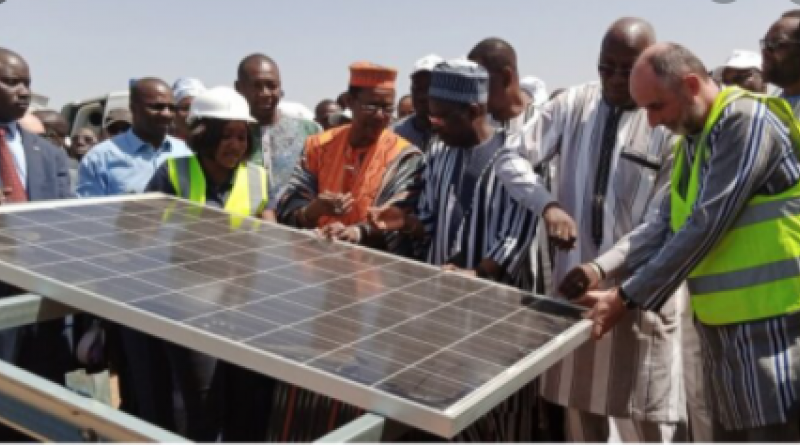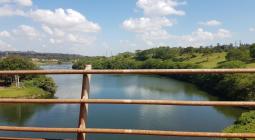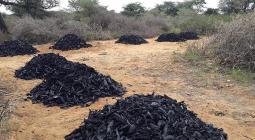Investing in Africa’s Engineers to build resilience against Change in Climate

Over the last couple of years, there have been significant events that raised valid questions around the impact of shifting weather patterns and climate change on the African continent. In March 2019 tropical Cyclone Idai made landfall near the Mozambican port city of Beira, ravaging the coastline and inland communities. Sadly, the United Nations estimated that Cyclone Idai and the flooding that followed it claimed the lives of more than 600 people, injured an estimated 1,600 and affected more than 1.8 million people. The impact to the economy was also estimated at a GDP growth cut from a forecast of 6.6% to 2.3% with a stated $773 million loss from damage to buildings, infrastructure and crops. Elsewhere on the continent, shifting weather patterns are taking a toll with clear examples such as Lake Chad- which has shrunk 90% since the 1960s.
There are huge debates around the causes of climate change. Whatever side of the debate one is on, it is undeniable that African countries are experiencing a temperature rise on average 1°C more than other parts of the world. Studies conducted by the Department for International Development (DFID) show the potential economic impact of climate change in Nigeria is between 6 – 30% of GDP between $100 – $460 billion- A wide range but not insignificant. This needs to be met with a robust response. Governments on the continent are spending between 2 and 9% of GDP on climate adaptation and mitigation initiatives but questions are raised over if this is enough.
Now more than ever, well trained engineers are essential to maximize the impact of this important work. Innovation in response to societal challenges is at an all-time high, providing access to sustainable solutions that can help people adapt to climate change and simultaneously address energy deficiencies. Innovation in response to societal challenges is at an all-time high, providing access to sustainable solutions that can help people adapt to climate change and simultaneously address energy deficiencies. Engineers can help to provide life-saving support to the communities hardest hit by extreme weather patterns, such as floods or droughts, by improving infrastructure or developing technologies to assist in emergency response, such as drones, monitoring and transportation. For off-grid communities that are subject to frequent power outages, engineers can design energy alternatives that improve livelihoods and help to build more sustainable societies.
With agriculture right at the heart of the economy of many African countries, the development of technology that enables climate-smart cultivation will help to build much welcome resilience. By increasing agricultural output, communities can build their financial independence and continue to play a significant role in the global economy.
Another critical area being addressed by engineers is access to energy. Households that are off the electricity grid or have only intermittent power can save 8% of their income by using renewable electricity and innovation in this space is essential to long-term development. For example, Olubanjo Olugbenga, founder of Nigerian Start-up Reeddi and short listee of the Royal Academy of Engineering’s Africa Prize, designed a capsule system to provide clean, reliable and affordable electricity to households and businesses operating in the energy-poor communities of sub-Saharan Africa.
Reeddi capsules contain lithium-ion cells, improved by a proprietary battery optimization algorithm to extend the lifespan of the capsule from two to four years, an increase from 500 to more than 1,200 charge cycles. Reeddi customers save up to 30% on their usual energy expenses with access to power anywhere, anytime. The Nigerian start-up recharges these capsules at a central location currently, but intends to erect solar-powered energy charging stations in communities, allowing customers to recharge capsules themselves. It currently serves more than 600 households and businesses each month, aiming to increase to 10,000 monthly customers across Nigeria in 2021.
Ugandan start-up Innovex, shortlisted for the Royal Academy of Engineering’s Africa Prize for Engineering Innovation 2020, developed Remot, a system that enables users to monitor their solar photovoltaic panel installations, reducing maintenance and preventing power outages. Nearly 600 million people in Africa have no access to electricity and off-grid solar power offers a rapidly scalable option to provide communities with income-generating opportunities and devices that increase productivity and help to protect livelihoods.
Necessity has spurred innovation in addressing challenges, but tasks like designing bespoke solar power installations require engineering expertise across a continent facing a chronic skills shortage in key areas. It is estimated that Africa needs an additional 2.5 million engineers to meet its Sustainable Development Goals. Unfortunately, like a number of continents in the world, there is still unemployment amongst graduates who are not fully equipped to take professional roles.
Addressing the shortfall demands a holistic approach to build experience, enhance skills and promote diversity. By fostering partnerships between academia and industry and collaboration between African and UK engineering bodies, the Royal Academy of Engineering’s Higher Education Partnerships in sub-Saharan Africa (HEP SSA) programme provides practical learning opportunities aligned to local industry as well as community needs. Under the overarching aim of achieving SDG 7 – ‘Ensure access to affordable, reliable, sustainable and modern energy for all’ – students at the University of Abuja are gaining better understanding of the renewable energy options across the country. In partnership with parastatal NASENI, research and innovation is guided to gain a better understanding of how to enhance solar energy adoption across the counrty. With energy demand four times that of installed capacity, innovation encouraged by the programme accelerates efforts to closing the gap.
As the continent closes its annual infrastructure spending shortfall – placed as high as $170 billion – the construction sector is expected to grow 6.7% annually making it imperative that such development is carried out as sustainably (and with a focus on shifting weather patterns) as possible. The Academy’s GCRF Africa Catalyst programme is working in partnership with the UK government’s Global Challenges Research Fund to contribute to the building of the capacity of engineering organizations across parts of the continent, particularly in the infrastructure sector, to share best practice and help to drive sustainable development. At the University of Rwanda, engineers are developing a toolkit to help built environment professionals measure and reduce the country’s embodied carbon.
It is important that African countries continue to develop with the appropriate interventions for the required resilience. There is also no doubt that being on the frontline of climate adaptation techniques will provide unique insights that could help the rest of the world. Amplifying African-based engineering expertise is therefore critical to improving the wider world’s defenses against the increasing threat of climate change.
About Author
Yewande Akinola is a Nigerian born chartered engineer in the UK who has dedicated her work to developing sustainable solutions for the built environment as well as promoting diversity in the industry on the continent. Yewande has won the Institution for Engineering and Technology’s Young Woman Engineer of the Year Award and AFBE’s Exceptional Achiever Award. Yewande is a member of the Royal Academy of Engineering (RAEng) GCRF Africa Catalyst Steering Committee.
23 March 2021
ventures.africa





